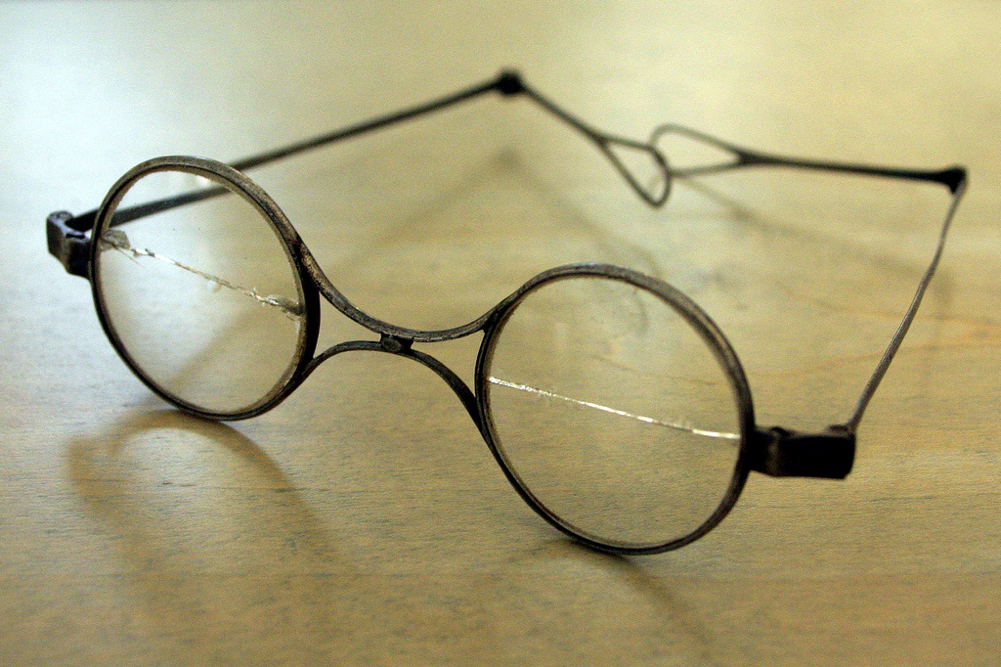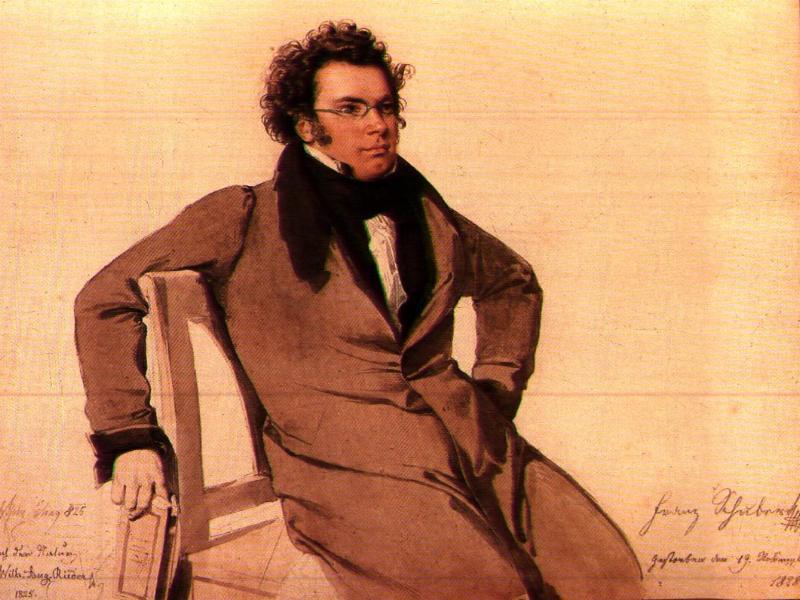Franz Schubert (1797-1828) in 1825.
Watercolor by Wilhelm August Rieder.
- Profession: Composer.
- Residences: Austria.
- Relation to Mahler:
- Correspondence with Mahler:
- Born: 31-01-1797 Himmelpfortgrund (now a part of Alsergrund), Vienna, Austria.
- Died: 19-11-1828 Vienna, Austria.
- Buried: After his death, Schubert was buried next to Beethoven in what is today called “Schubert Park”, just down Währingerstrasse from the Volksoper, Vienna, Austria. In the 1880’s, the remains of both composers were moved to the newly opened Central cemetery, Vienna, Austria. Grave: 31A-28.
Franz Peter Schubert was an Austrian composer. Schubert died at 31 but was extremely prolific during his lifetime. His output consists of over six hundred secular vocal works (mainly Lieder), seven complete symphonies, sacred music, operas, incidental music and a large body of chamber and piano music. Appreciation of his music while he was alive was limited to a relatively small circle of admirers in Vienna, but interest in his work increased significantly in the decades following his death. Felix Mendelssohn, Robert Schumann, Franz Liszt, Johannes Brahms and other 19th-century composers discovered and championed his works. Today, Schubert is ranked among the greatest composers of the late Classical era and early Romantic era and is one of the most frequently performed composers of the early nineteenth century.
The last musical work he had wished to hear was Beethoven’s String Quartet No. 14 in C-sharp minor, Op. 131; his friend, violinist Karl Holz, who was present at the gathering, five days before Schubert’s death, commented: “The King of Harmony has sent the King of Song a friendly bidding to the crossing”. It was next to Beethoven, whom he had admired all his life, that Schubert was buried by his own request, in the village cemetery of Währing.

Franz Schubert, glasses.

